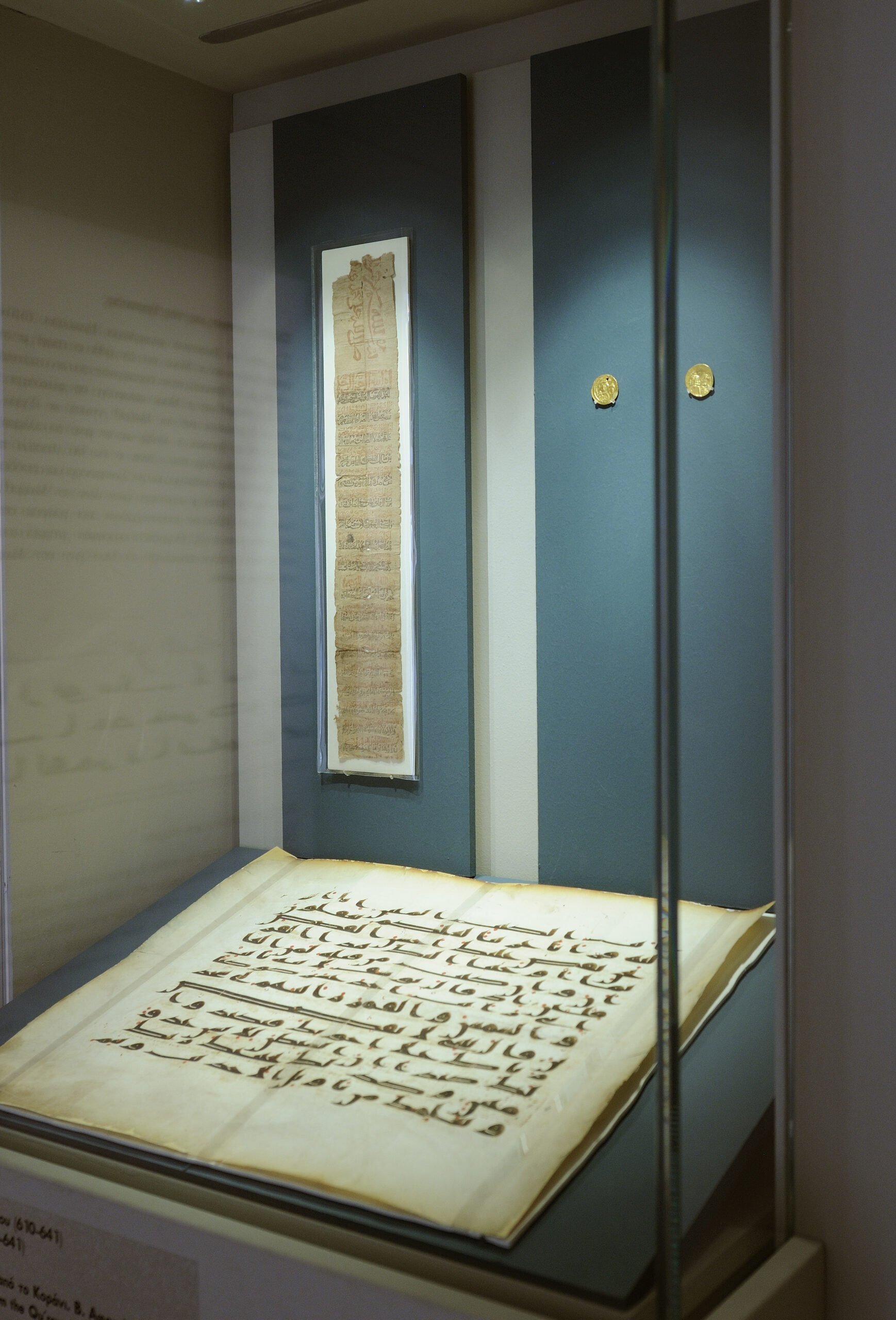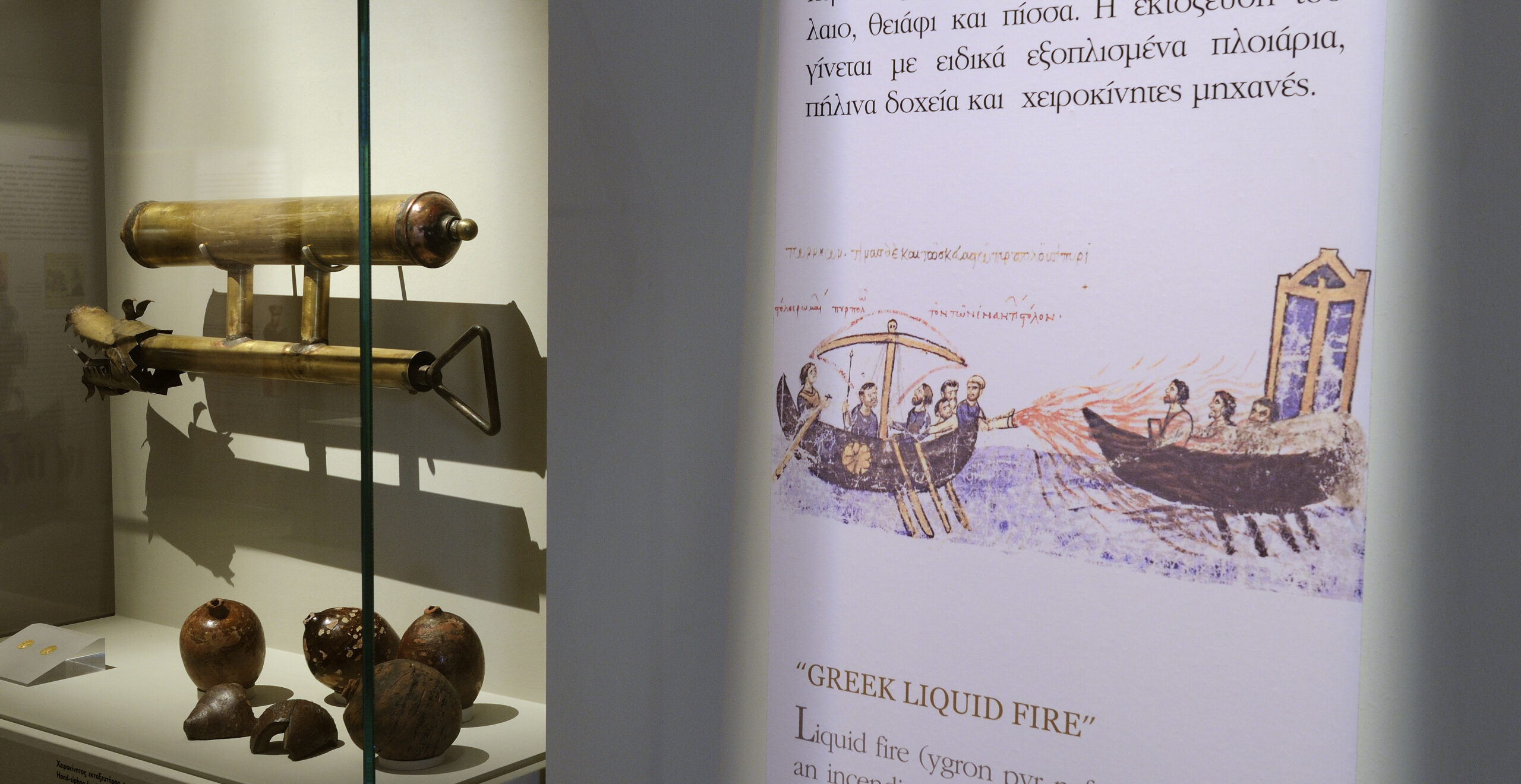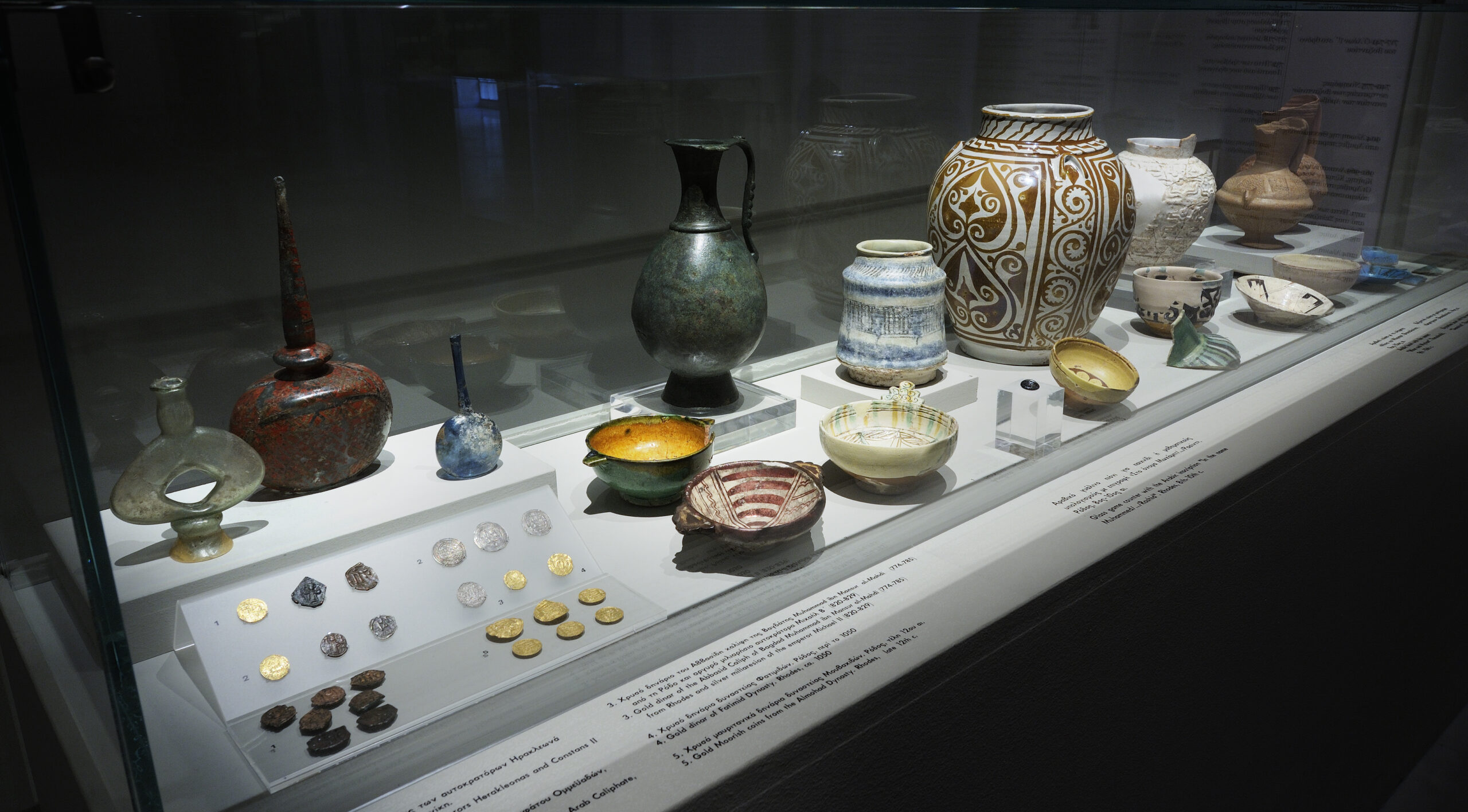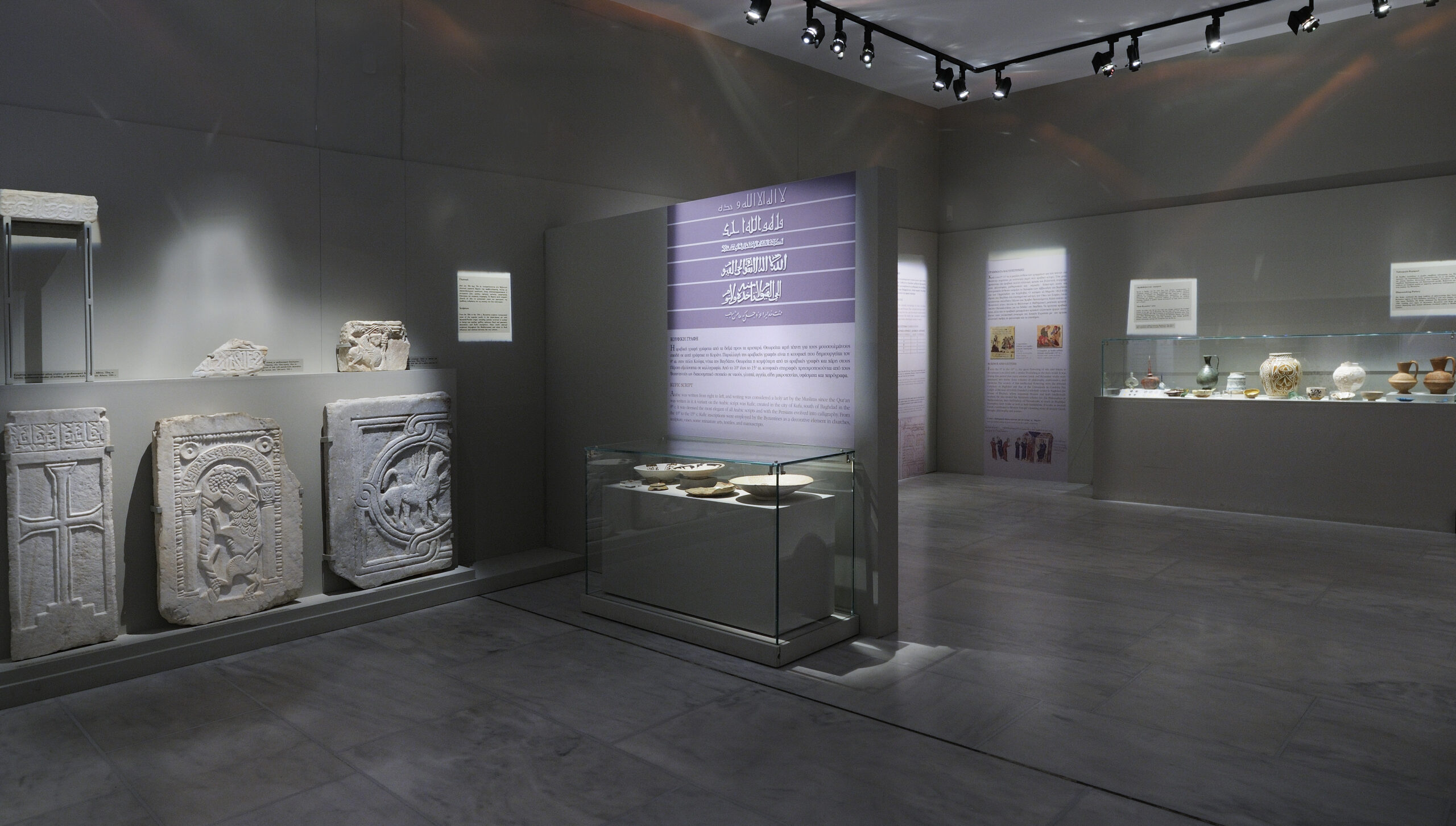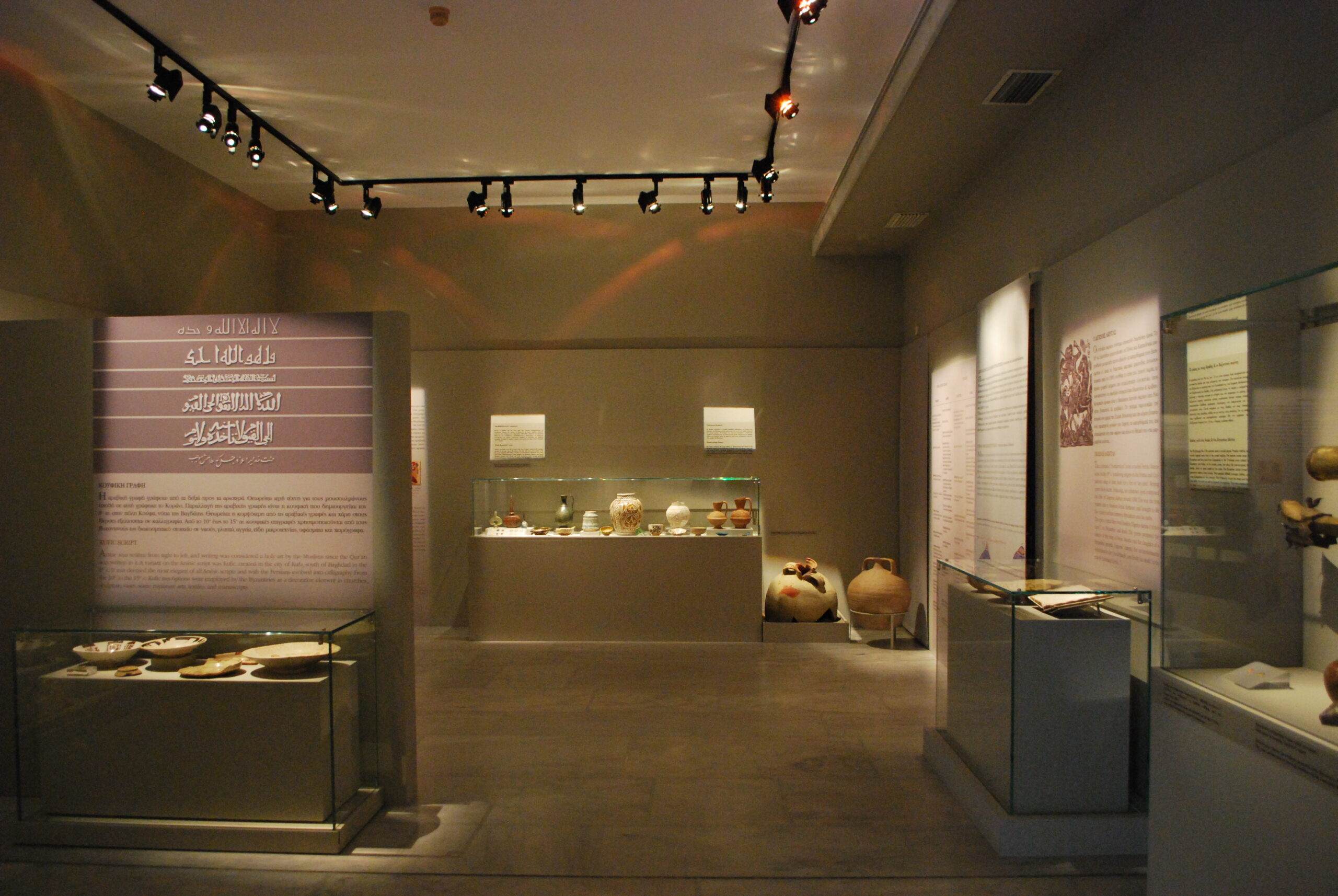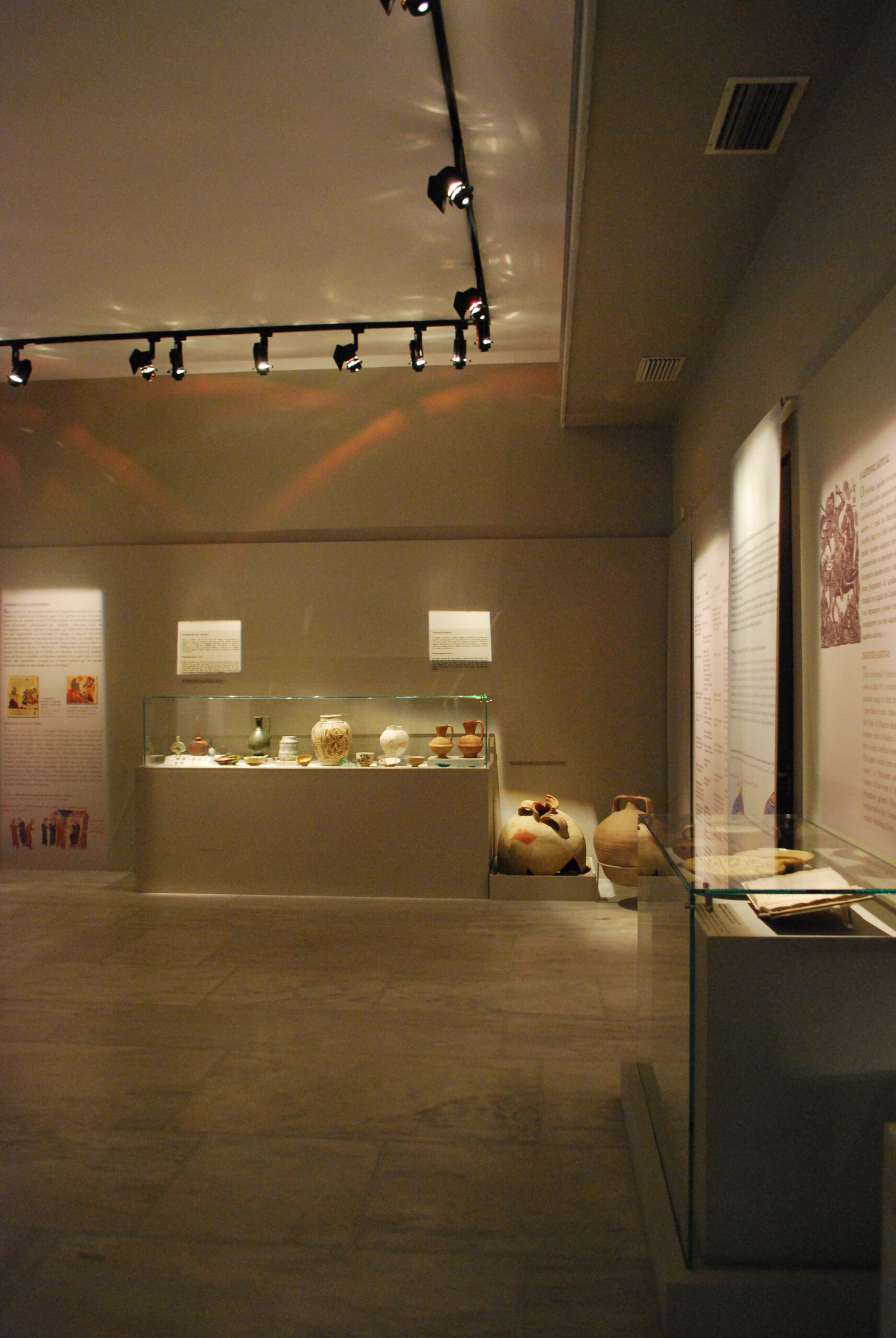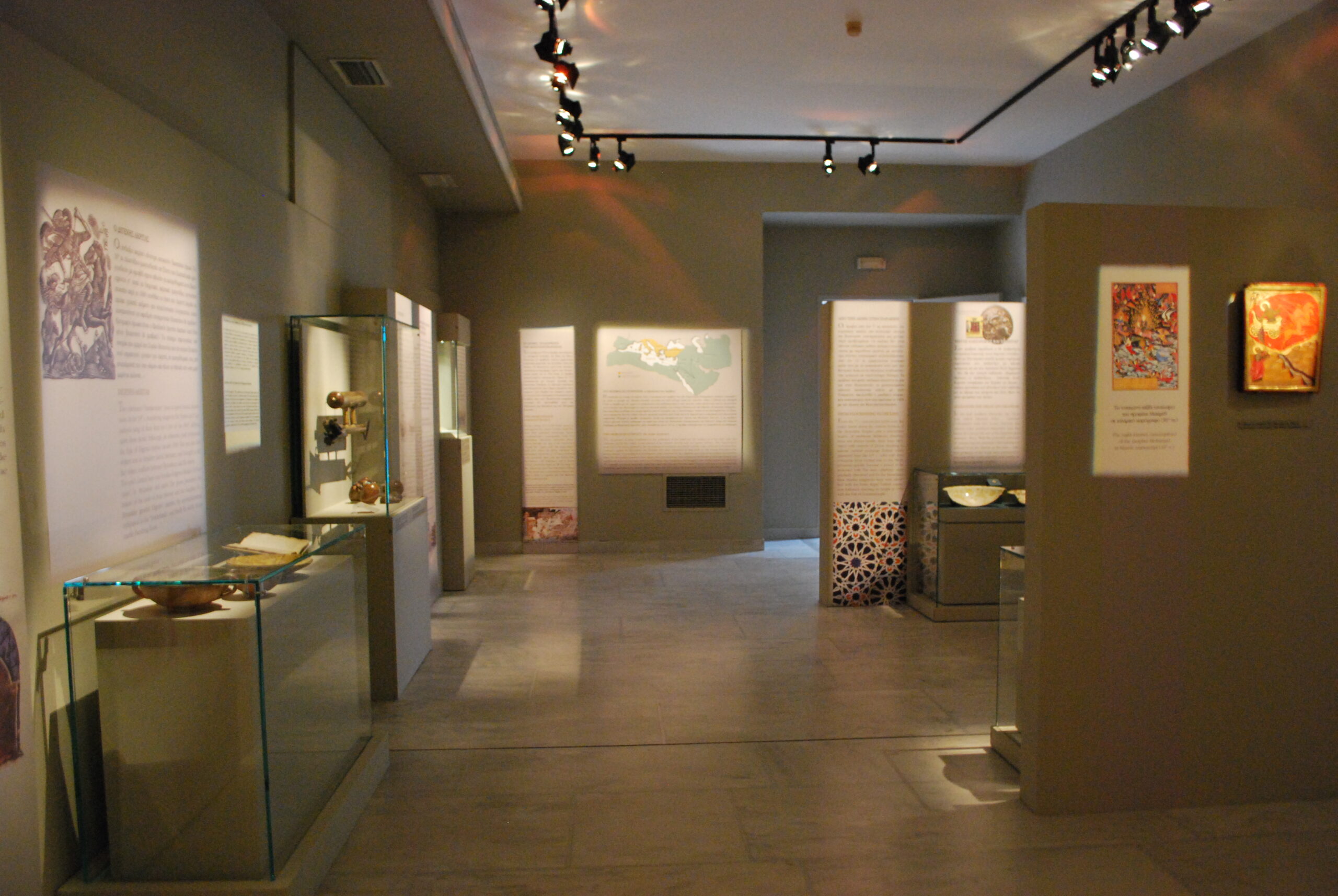This website uses cookies so that we can provide you with the best user experience possible. Cookie information is stored in your browser and performs functions such as recognising you when you return to our website and helping our team to understand which sections of the website you find most interesting and useful.
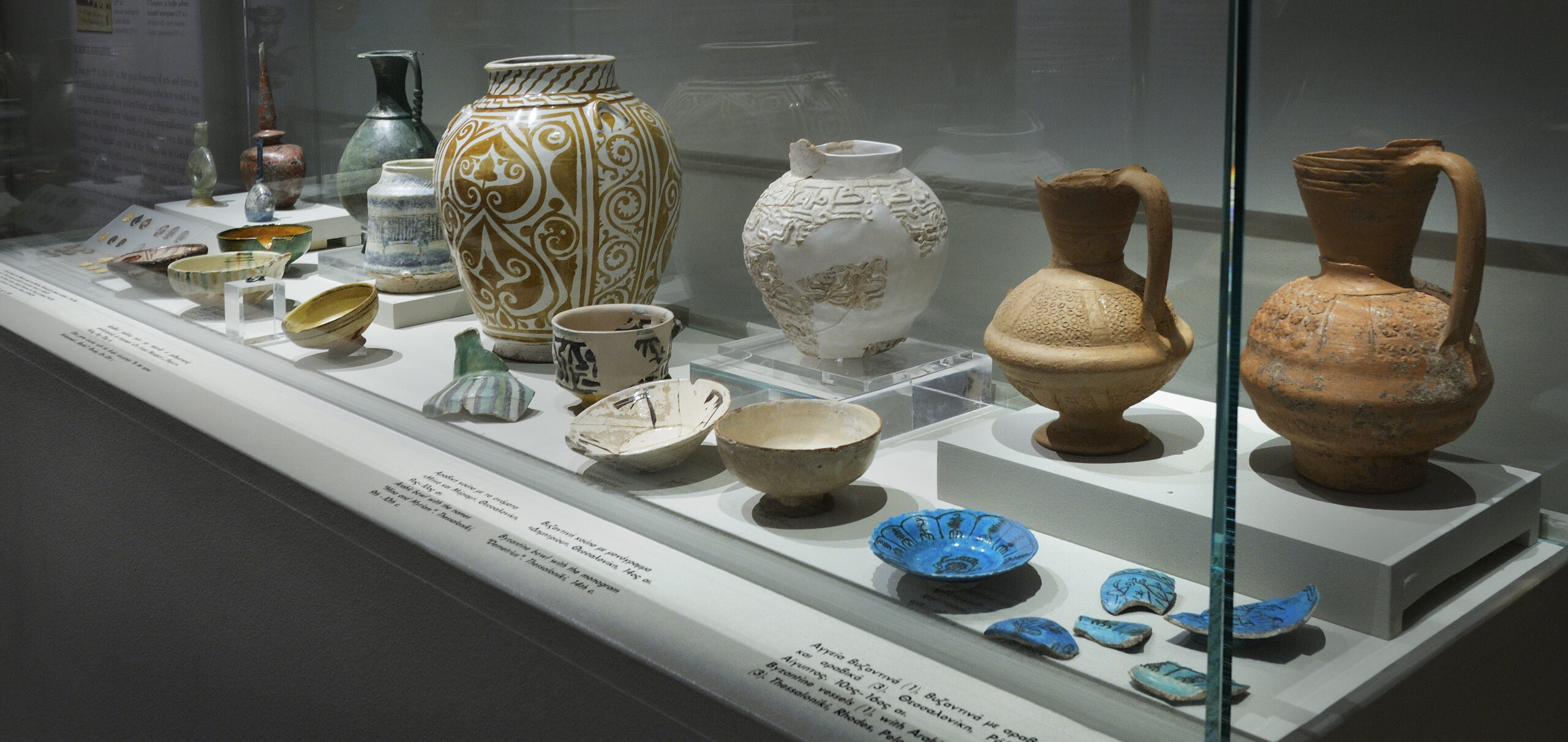
Byzantium and the Arabs
14.10.2011 - 31.03.2012
The Museum of Byzantine Culture, in the frame of cooperation of the five museums of Thessaloniki, “Movement 5M”, participates in the events of the 3rd Biennale 2011 with the organization of a temporary exhibition, titled “Byzantium and the Arabs”. This is the first time that a state museum in Greece has attempted to present this theme, which pertains not only to the two neighbouring worlds, the Byzantine and the Arabic, but also to the interesting, distinct relations and interactions stemming from their contact.
The exhibition covers the period from Islam’s emergence in the 7th century AD to the fall of Constantinople in 1453, and is divided into three sections. The exhibition is comprised of 104 objects (icons, manuscripts, jewelry, coins, ceramics, and sculptures) from the 7th to the 18th centuries AD displayed along with extensive visual material. The selected exhibits originate from the collections of the Museum of Byzantine Culture, as well as other public and private museums, including the National Archaeological Museum, the Byzantine and Christian Museum, the Benaki Museum, the Historical Museum of Crete and various Ephorates of Antiquities in Greece. The exhibition is part of the Hellenic Ministry of Culture and Tourism’s initiative “Thessaloniki: Cultural Crossroads”, which is dedicated for the year 2011 to the Middle East.
Institutions
Museum of Byzantine Culture, Program “Thessaloniki: Cultural Crossroads” of the Ministry of Culture and Tourism
Cooperation of the 5 Museums (5M): State Museum of Contemporary Art, Macedonian Museum of Contemporary Art, Teloglion Foundation of Arts
Sponsors
Sponsor OPAP
Exhibition Location
Wing of temporary exhibitions “Kyriakos Krokos”




